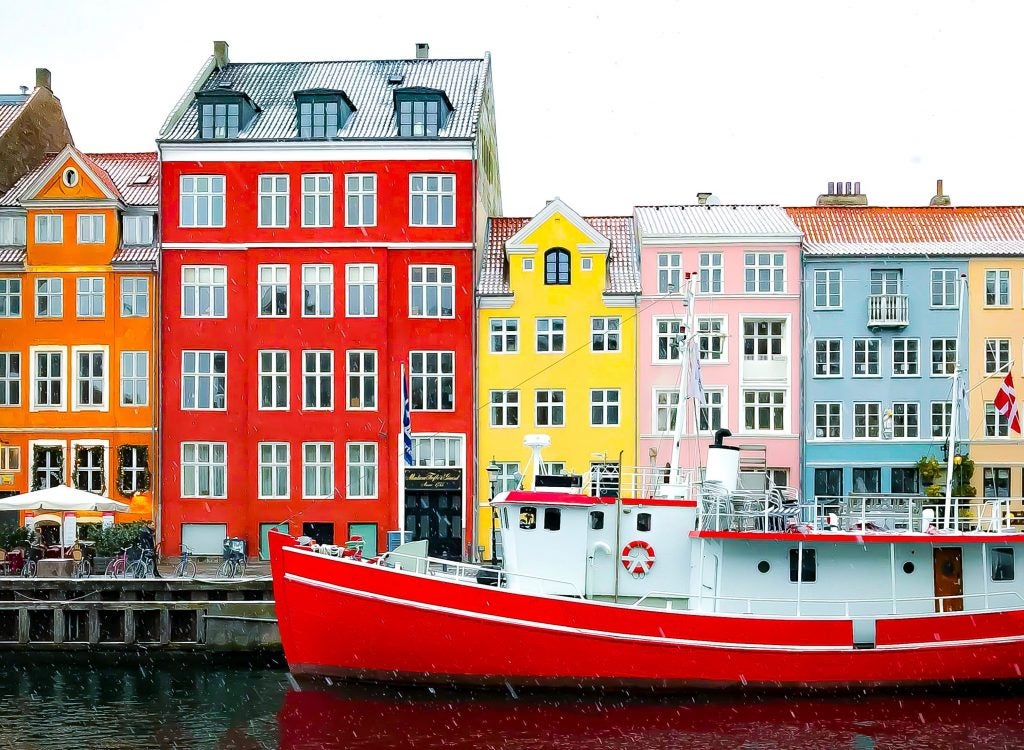Study Abroad
JUPS Majors who study abroad may transfer up to two courses to count as electives toward the major, with the approval of the Program Director. Before study abroad, students must review their study abroad proposal and courses for consideration with the Program Director at least few weeks ahead of the semester deadlines for submitting study abroad forms. After returning, students then submit to their Dean the “Transfer Credit Form” available from the College Dean’s Office. All required JUPS core courses must be taken at Georgetown. For more information on how credits transfer back to Georgetown, please visit the College of Arts & Science website.
Students interested in pursuing study abroad options should also consult with the Office of Global Education.
JUPS-Oriented Study Abroad Options
CBL/JUPS4951: Georgetown in Cape Town: Social Transformation in South Africa ( Summer)
CBL/JUPS4951: Georgetown in Cape Town: Social Transformation in South Africa ( Summer)

Venture to a cosmopolitan city that is still emerging from decades of apartheid, and is marked by its history of legal and racial discrimination, inequality, and oppression, but is all a hub for community organizations working on issues related to human rights and social justice. Through discussions, lectures, site visits, and meetings with community leaders, you will gain insight into the history of South Africa and the system of apartheid and extend this understanding to analyze the ongoing impact of past injustices on present policies and social movements. In addition to lectures and discussions led by faculty and site visits to historical places, you will be immersed in local cultural contexts through a placement at a community service organization where you will observe and participate in community struggles for economic, education, and social equality. This course satisfies the JUPS Social Action requirement.
Danish Institute for Study Abroad — Copenhagen, Denmark
Danish Institute for Study Abroad — Copenhagen, Denmark

DIS Abroad has several programs and tons of core electives that can be taken regardless of program. So, below each JUPS-friendly program is listed and described, and then the potential JUPS electives for all of them are listed. DIS Abroad also has a research project option.
Discover how the city has become the focal point for cultural expression, social change, and political tension. Symbolizing freedom and upward mobility, the city promises a better life while at the same time generating challenges and fears. Students will travel on two course-integrated study tours to Vienna and Budapest to compare how these cities are currently developing their infrastructure from both the Eastern and Western European sociopolitical contexts. Using Copenhagen as their classroom, students will engage in field studies that explore its dramatic urban change over the past few decades, from the development of a welfare state to a cutting-edge, sustainable, and livable city. This program is for students of history, urban design, urban studies, politics, or sociology who wish to engage and examine contemporary cities through a multidisciplinary academic lens.
Core Course: European Urban Life and Development (Note: This course will change name to The European Urban Experience: Why Cities Matter from fall 2015)
Enrich and develop your critical thinking skills through investigating and reflecting on current issues in child development and education. Delve into a cross-cultural approach to childhood and adolescence and reflect on the unique Nordic pedagogy of ‘the good childhood.’ Students will travel with DIS faculty on course-integrated study tours to explore cross-cultural European educational methods by visiting practitioners, researchers, and childcare and youth institutions Each student will also develop interpersonal competencies in their practicum by engaging actively with a Danish childcare institution, public school, or a high school. This program is for students of child development, social policy, human development, family studies, anthropology, education, or sociology who want to enhance your intercultural skills and explore international theories and practice within the discipline of child and adolescent development.
Core Courses: Adolescence in Northern Europe, Child Development in Scandinavia, Children in a Multicultural Context, or Children with Special Needs
Enhance your knowledge of international law and human rights by analyzing the legal aspects and political context behind major modern conflicts and human rights violations in Europe. Students will take a core class with faculty who have first-hand experience from recent international conflicts, and who bring a professional perspective to the classroom on how law affects military planning and execution of operations. They will travel with DIS faculty on course-integrated study tours and come face to face with current political tensions and issues of national identity in the aftermath of recent conflict and civil war. Students will build analytical skills focused around legal thinking and acquire tools to understand how legal methods can be applied in real-life examples using Danish and international case studies. This program is for students of political science, international relations, government, human rights, pre-law, or global studies.
Core Course: Humanitarian Law and Armed Conflict
Prostitution and the Sex Trade
Prostitution is legal in Denmark, Sweden, and the Netherlands, but each country applies its own policies and laws. In this program, students explore how different cultures construct very different narratives about sex, gender, and rights, and grapple with conflicting views. Students will travel with DIS faculty on course-integrated study tours to talk with former sex workers and NGOs to examine the differences, legally and socially, in how prostitution is approached in comparison to Denmark. They will use Copenhagen as a case study with guest lecturers and class visits to the city’s Red Light District and organizations such as Reden (The Nest), a drop-in facility for Danish sex workers. This program is right for students of gender or women’s studies, sociology, anthropology, human rights, or international relations. The topics explored relating to prostitution and human trafficking will apply to a future career in law, academia, or social work.
Core Course: Prostitution and the Sex Trade in Europe
Examine the social, political, and economic issues associated with sustainable development and the range of Danish and European stakeholders shaping the sustainability agenda. Students will use Copenhagen as a classroom by visiting some of the world’s most progressive sustainability initiatives, such as the European Environment Agency, Risø National Laboratory for Renewable Energy, and the NGO Energy Crossroads. They will travel with DIS faculty on course-integrated study tours to leading Danish and Northern European destinations with cutting-edge sustainability strategies from off-shore wind power to urban redevelopment. Students will also create their own strategic plan for a sustainable future by combining classroom experiences with field studies and study tour visits. This program is right for students of environmental studies, public policy, or general environmental affairs.
Core Course: Sustainable Development in Northern Europe
Potential JUPS Electives: Activism: Engagement and Resistance; Al-Qaida and Intelligence Analysis; Changing the News: Communication and Positive Psychology; Children in a Multicultural Context; Children with Special Needs; Conspiracy Theories and Historical Controversies; Cross-Cultural Communication; Cross-Cultural Psychology; Cultural Diversity and Social Capital; Defending the Planet: Sustainability Practicum; Designing Communication Campaigns; Development Economics; Economics of Crime; Environmental Economics; Environmental Impact of Humans; Environmental Philosophy; Environmental Policy in Practice; Equality in Scandinavia; European Urban Experience, The: Why Cities Matter; Fleeing Across Borders: International Refugee Law; Food Systems; Gang Crime in Scandinavia; Gender Perspectives on Human Rights; Gender and Sexuality in Scandinavia; Geographic Information Systems: Applied Climate Change Cases; Getting There: Transportation in Urban Europe; Globalization and European Economies; Health Beyond Borders; Healthcare Strategies for At-Risk Populations; Holocaust and Genocide; Human Trafficking in a Global Context; Humanitarian Law and Armed Conflict; LGBTQ in Europe: Theories, Communities, and Spaces; Masculinities in Scandinavia; Migrant Communities and Religious Diversity in Denmark; Muslims in the West; Positive Psychology; Prostitution and the Sex Trade in Europe; Psychology of Crisis; Public Health Ethics; Rebel Nations: Between Communism and Democracy; Sociology of Migration; Stolen Childhoods: Migrant and Refugee Children in Europe; Strategies for Urban Livability; Sustainable Development in Northern Europe; Women and Leadership; Women, Art, Identity
School of International Training (SIT) Study Abroad
School of International Training (SIT) Study Abroad
School of International Training (SIT) Study Abroad offers more than 50 accredited undergraduate semester study abroad programs — in Africa, Asia and the Pacific, Europe, Latin America, and the Middle East, as well as comparative programs in multiple locations. Search programs by location, language, issue area, or term. Each program focuses on field-based research and culminates in a published academic paper on a relevant topic of the student’s choice. Click this link to learn more about how Georgetown students have found SIT programs to be integral to their undergraduate experiences.
Program examples include:
- Chile: Cultural Identity, Social Justice, and Community Development
- Indonesia: Arts, Religion and Social Change
- Morocco: Migration and Transnational Identity
- Rwanda: Post-Genocide Restoration and Peacebuilding
- Serbia, Bosnia, and Kosovo: Peace and Conflict Studies in the Balkans
- Samoa: Social and Environmental Change in Oceania
See the full list of program offerings by clicking this TerraDotta link.